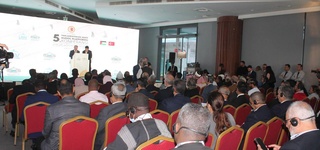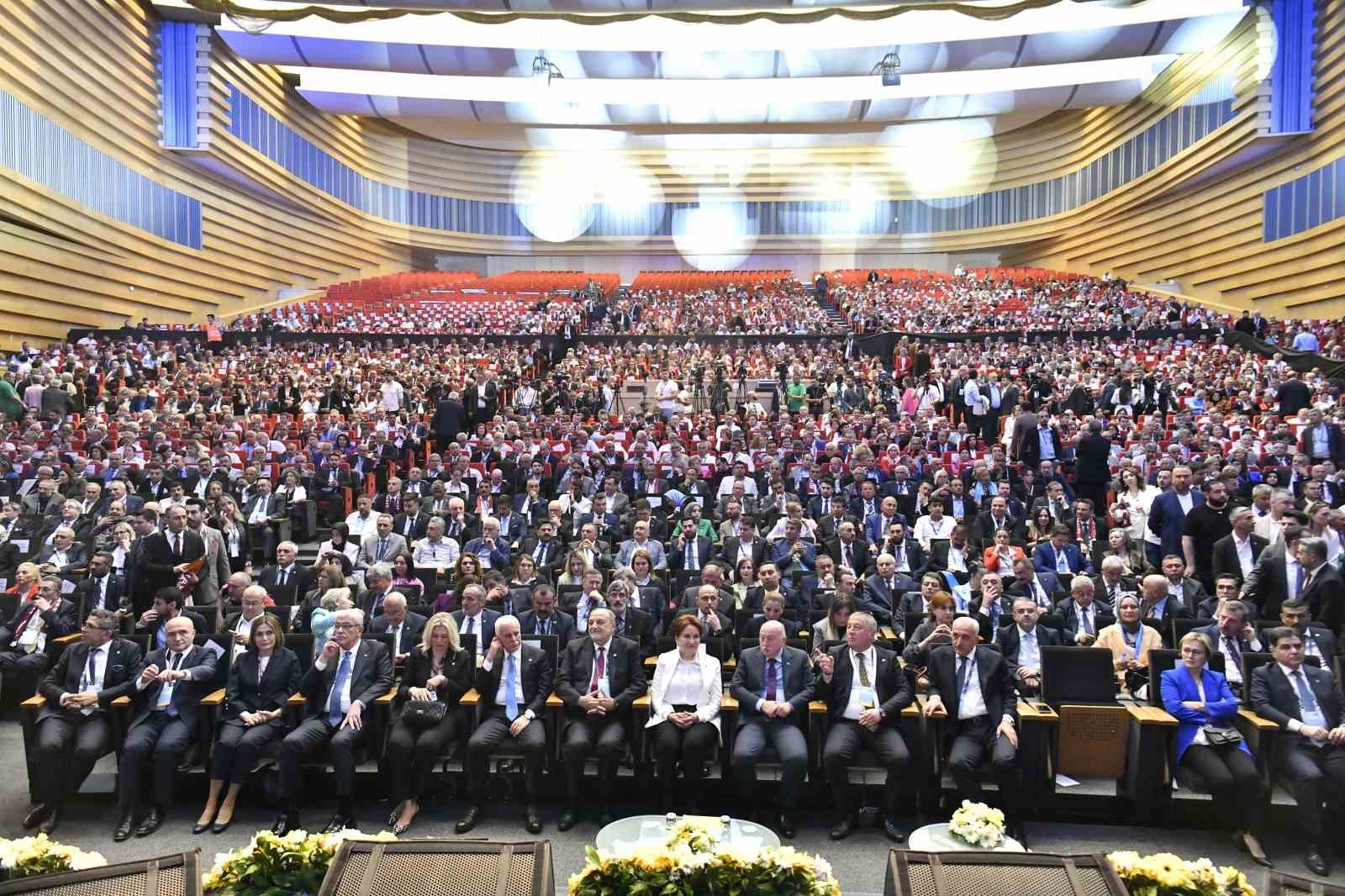Internet usage by children increases rapidly between 2013 and 2021 in Turkey
While Internet usage was 50.8% in 2013 for children aged 6-15, it became 82.7% in 2021, a survey on information and communication technology usage by children showed.

 Google News'te Doğruhaber'e abone olun.
Google News'te Doğruhaber'e abone olun. When Internet usage was analyzed by sex; it was observed that the proportion of Internet usage of boys increased to 83.9% in 2021, which was 53.7% in 2013, and the Internet usage proportion of girls increased to 81.5% in 2021, which was 47.8% in 2013, according to the survey.
The proportion of children using the Internet regularly increased
Children using the Internet declared that 90.1% of them used the Internet almost every day, 8.5% of them at least once a week, and 1.4% of them less than once a week. The proportion of children who declared that they used the Internet regularly including almost every day or at least once a week was 98.6%. This proportion was 91.8% in 2013. While the proportion of boys using the Internet regularly was 92.8% in 2013, it was 98.9% in 2021, and while the proportion of girls using the Internet regularly was 90.7% in 2013, it was 98.4% in 2021.
Children using the Internet regularly in the age group of 6-15 used the Internet on average of 12 hours 25 minutes in class and 6 hours 59 minutes out of class per week.
Participating in online classes ranked first among Internet usage purposes with 86.2%
In the activities carried out through the Internet by children aged 6-15 using the Internet regularly, participation in online classes with 86.2% took the first place, while using the Internet for homework or learning with 83.6% took the second place. This was followed by playing or downloading games with 66.1%, watching videos from sharing sites with 61.0%, making calls (including video calls) over the Internet with 55.5%. The least activity of children on the Internet was online shopping with 9.1%.
31.3% of children using the Internet regularly used social media
31.3% of children using the Internet regularly stated that they used the Internet for social media. It was observed that 77.7% of children in the 6-15 age group using social media used social media almost every day, 16.5% of them at least once a week, and 5.8% of them less than once a week. The proportion of children who declared that they used the Internet and social media regularly including almost every day or at least once a week was 94.2%. While the proportion of children in the 6-10 age group who used social media regularly was 84.6%, this proportion was 95.9% in the 11-15 age group.
Children spent at least 3 hours a day on social media
Children using regular social media used social media for an average of 2 hours and 54 minutes a day on weekdays, and an average of 2 hours and 44 minutes a day on weekends. When the social media daily usage on weekdays and weekends was analyzed by sex; it was seen that social media usage was on average of 2 hours and 54 minutes a day for boys and 2 hours 53 minutes for girls on weekdays, 2 hours and 37 minutes a day for boys, and 2 hours and 52 minutes for girls on weekends.
64.4% of children used mobile phone/smartphone
The proportion of children aged 6-15 who stated that they used mobile phones/smartphones was 64.4% in 2021. The proportion of using mobile phones/smartphones was 65.7% for boys and 63.0% for girls. When the proportion of using mobile phones/smartphones was analyzed by age group, it was seen that this proportion was 53.9% in children aged 6-10, and increased to 75.0% in children aged 11-15.
Mobile phone/smartphone was used mostly for online course participation
84.6% of the children using mobile phones/smartphones stated that they used it almost every day, 13.3% of them at least once a week, and 2.1% of them less than once a week. The proportion of children who declared that they used a mobile phone/smartphone regularly including almost every day or at least once a week was 97.9%.
When the purposes of phone usage by children using mobile phones/smartphones regularly were examined; it was observed that the children in the 6-15 age group used mobile phones/smartphones for the purpose of participating in online classes with the highest proportion of 77.7%. This was followed by the purposes of studying, preparing homework/presentation with 77.4%, making calls (including video calls) with 68.7%, and playing online/offline games with 66.9%.
32.3% of children checked their mobile phone/smartphone every half hour
32.3% of children using mobile phone/smartphone regularly in the 6-15 age group stated that they checked their mobile phone/smartphone at least every 30 minutes. This proportion was 32.8% for boys and 31.7% for girls. While 43.5% of children using mobile phone/smartphone regularly in the 11-15 age group stated that they checked their phone every half hour, this proportion was 16.5% in the 6-10 age group.
The proportion of children using mobile phone/smartphone regularly, checking his/her mobile phone/smartphone at least every 30 minutes, the last thing done before going to sleep and the first thing done after waking up is to check his/her mobile phone/smartphone, checking his/her mobile phone/smartphone while watching TV and eating with others was 3.7%. The proportion of children doing at least one of these was 52.4%.
55.6% of children used computers
55.6% of the children stated that they used a computer (desktop/laptop/tablet). The proportion of children using computers was 60.5% in 2013. When the children using computers was examined by age group; 53.4% of children aged 6-10 and 57.8% of children aged 11-15 declared that they used computers in 2021.
Tablet computer was the most used type of computer by children with 57.2%
It was observed that the children in the age group of 6-15 used mostly tablet computers with 57.2%. The proportion of children using tablet computers was 7.3% in 2013. While the proportion of children using portable computer (laptop, netbook etc.) was 34.4% in 2013, it was 47.4% in 2021. While the proportion of children using desktop computers was 76.6% in 2013 and 27.2% in 2021.
Proportion of children with at least one information and communication technology product for their own use alone increased
While the proportion of children aged 6-15 who declared that at least one information and communication technology products such as computer (desktop/laptop/tablet), mobile phone/smartphone, TV/smart TV, smart watch and game console was for their own use alone was 66.6% in 2021. When the proportion of children who have at least one information and communication technology product for their own use alone was analyzed by sex; it was observed that this proportion was 67.8% for boys and 65.4% for girls in 2021.
While the proportion of children having a computer for their own use alone was 24.4% in 2013, it was 46.3% in 2021, as for the proportion of children with a mobile/smartphone was 13.1% in 2013 and 39.0% in 2021.
The proportion of boys playing digital games was higher than the proportion of girls
While 36.0% of the children played digital games, this proportion was 32.7% in the 6-10 age group and 39.4% in the 11-15 age group. When the proportion of playing digital games was analyzed by sex and age group; while the proportion of playing digital games for boys in the 6-15 age group was 46.1%, the proportion of playing digital games was 25.4% for girls. This proportion was 38.7% for boys and 26.4% for girls in the 6-10 age group, and 53.7% for boys, and 24.4% for girls in the 11-15 age group.
Digital gaming time was longer for boys
94.7% of children in the 6-15 age group who stated that they played digital games declared that they played them regularly including almost every day or at least once a week. It was observed that 96.2% of boys and 91.8% of girls in the 6-15 age group stated that they played digital games regularly.
Of those who stated that they regularly played digital games; boys declared that they play digital games for 3 hours 2 minutes and girls for 2 hours 18 minutes on weekdays; boys for 2 hours 59 minutes and girls for 2 hours 11 minutes on weekends.
The most played type of digital game was war game
54.3% of the children playing digital games regularly in the 6-15 age group stated that they played war games. This was followed by adventure/action with 52.0%, strategy with 41.8%, simulation with 27.5% and sports games with 26.5%. Role playing was the least played type of game with 19.1%.
When the types of digital games played by children who stated that they played digital games regularly were examined by sex; it was seen that the most played type of game by boys in the 6-15 age group was war games with 68.4%, while girls played adventure/action games with 44.3%. When the types of digital games played by children playing digital games were examined in terms of age groups, the most played digital game type in the 6-10 age group was adventure/action with 49.6%, while the war games were 66.3% in the 11-15 age group.
Parents thought that their children played digital games too much
When asked to children playing digital games regularly about their opinions on playing digital game; 58.4% of children in the 6-15 age group stated that their parents thought their children played digital games too much. The children playing digital game regularly declared that 47.3% of them played more than they planned, 42.6% of them thought that playing too much causes them to neglect their responsibilities, 42.3% of them spent too much time playing games, and 28.0% of them they felt restless and unhappy when they did not play digital games.
Children read less to spend more time in front of the screen
When asked to children about their thoughts on the situations caused by the time they spent in front of the screen for activities such as usage of computer, mobile phone/smartphone, Internet and social media, playing digital games, watching TV, 35.9% of the children in the 6-15 age group stated that they read less books because they spent more in front of the screen. This was followed by studying less with 33.5%, spending less time with their family with 27.7%, meeting less face to face and playing less games with their friends with 25.4%, and sleeping less with 17.2%. (ILKHA)



















































